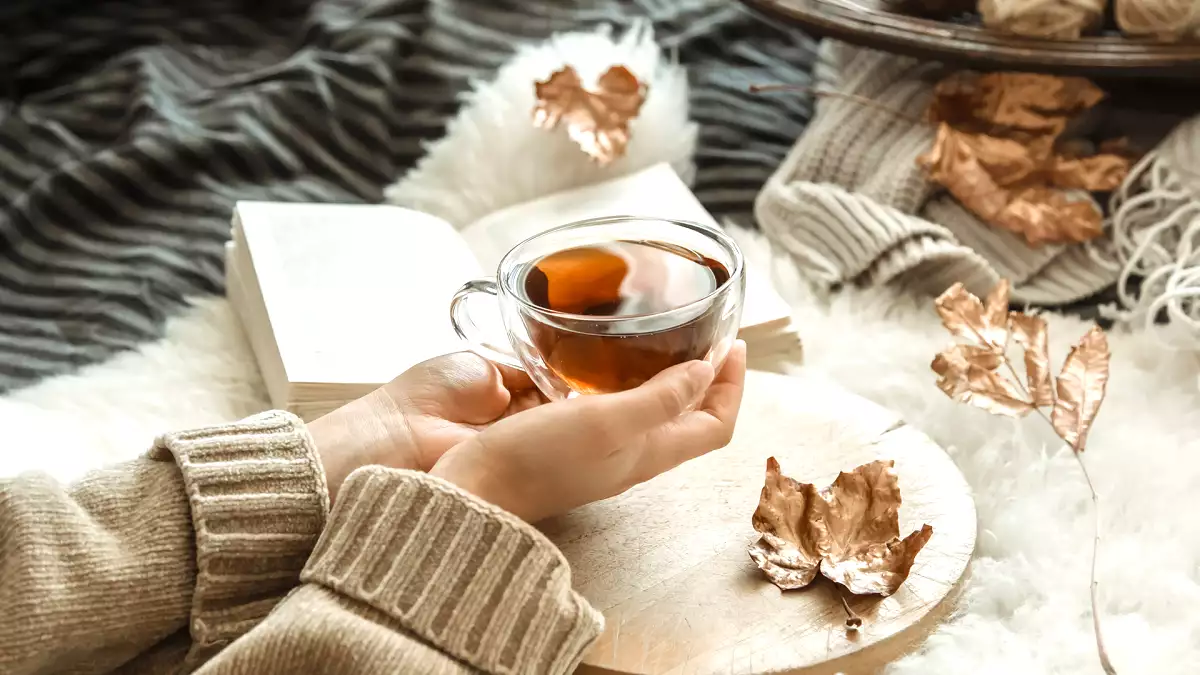Sleepless nights and a racing mind? This calming drink might work better than you expect

Sleeping well is more than just turning off the lights and closing your eyes: it's preparing your body and mind for regeneration. A simple but underrated ritual can transform this transition between the noise of the day and the silence of the night: drinking a relaxing tea. Here, we'll explore how certain teas can help calm down, reduce anxiety and signal to the body that it's time to rest with science, practice and taste.
Why tea can help you sleep better
Some teas are hallmarks of relaxation: for example, chamomile has been shown by studies to improve the quality of sleep - fewer interruptions during the night and a feeling of being more rested when you wake up.
This is because they contain active compounds (such as chamomile flavonoids) that interact with the central nervous system.
What's more, the simple act of preparing and drinking hot tea already has a ritualistic effect: it slows you down, occupies your mind and reduces the daily rhythm. In short: tea is not a miracle cure, but an ally of good sleep hygiene.
The best teas for better sleep
Not just any tea helps you sleep. Some, such as black tea or green tea, contain caffeine and should be avoided at night. Other herbs are known for their calming and sedative properties. Here are some of the most effective:
- Chamomile: one of the most popular options, chamomile is gentle, aromatic and known to reduce anxiety and promote deeper sleep.
- Lavender: with its delicate, floral scent, lavender helps to relax the body and calm the mind, making it ideal for tense nights.
- Valerian: known for its sedative effect, it is recommended for those who suffer from insomnia or find it difficult to relax at the end of the day.
- Melissa (lemon balm): with a light and pleasant taste, it helps to calm thoughts and improve sleep quality.
- Passionflower: has a calming effect and is ideal for nights when your mind is agitated or worried.
You can use them separately or in combinations - many ready-made teas already mix these herbs to enhance their effects.
How to include tea in your evening ritual
For tea to have a real impact on your sleep, it's important to integrate it into a consistent routine. Here are some tips:
- Timing: drink the tea between 30 minutes and 1 hour before bedtime. This gives your body time to absorb the relaxing compounds.
- Avoid distractions: take advantage of the moment to disconnect. Drink your tea in silence, in low light, without your cell phone or TV.
- Moderate quantities: one cup is enough. Drinking too much can make you wake up in the middle of the night to go to the bathroom.
- Avoid sugar: if possible, drink the tea straight to avoid energy spikes. If you need to sweeten it, opt for honey or a small slice of apple during brewing.
- Create a calm environment: scent the room, dim the lights and turn off the screens. Your body needs clear signals that the day is over.
When tea isn't enough
It's important to remember that tea is a supplement, not a magic solution. If you suffer from frequent insomnia, have severe difficulty falling asleep or wake up several times during the night, you may need to look at other factors: diet, stress, screen use, overstimulation before bed and even hormonal problems.
In this case, teas are still an ally, but you may need to adjust your routine as a whole or seek professional advice.
The power of ritual
More than the effect of a single herb, what really transforms the quality of sleep is the creation of a deceleration ritual. A cup of hot tea, taken with presence and calm, becomes an invitation to get out of "rush" mode and into "rest" mode.
It's this small gesture, repeated every day, that signals to the body: "now it's time to sleep". And little by little, it responds.
If you've been sleeping badly, try something simple: turn off the screens, heat up the water, calmly prepare a cup of tea and sip it slowly. Don't expect a miracle on the first night - but repeat the ritual for a few days and observe. Sleep doesn't have to be an unsolvable problem. Sometimes it all starts with a warm cup of tea, a gentle aroma and the decision to take care of yourself.
Good night and sweet dreams.
 Mirella Mendonça
Mirella Mendonça
Comments